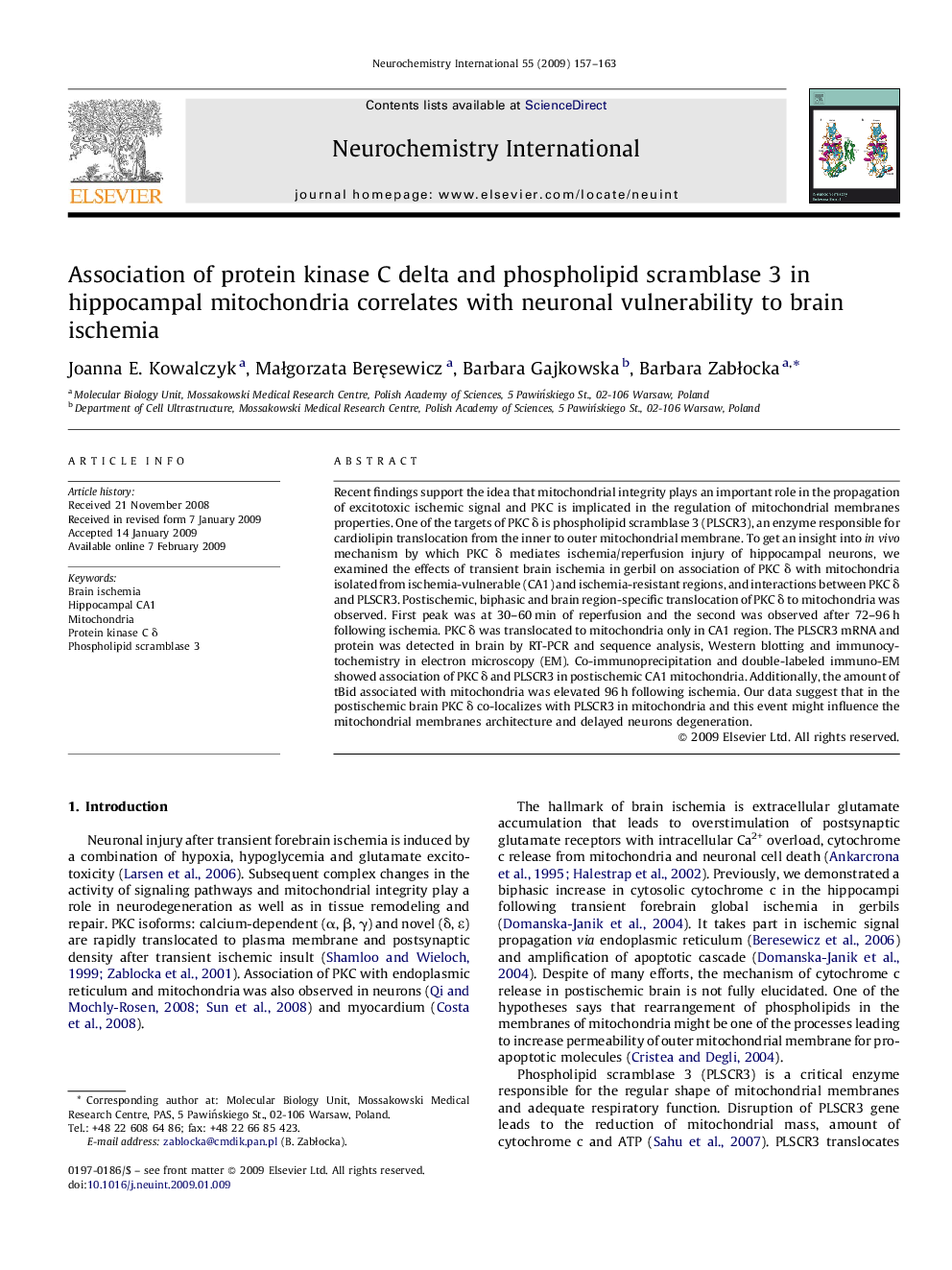| Article ID | Journal | Published Year | Pages | File Type |
|---|---|---|---|---|
| 2201486 | Neurochemistry International | 2009 | 7 Pages |
Recent findings support the idea that mitochondrial integrity plays an important role in the propagation of excitotoxic ischemic signal and PKC is implicated in the regulation of mitochondrial membranes properties. One of the targets of PKC δ is phospholipid scramblase 3 (PLSCR3), an enzyme responsible for cardiolipin translocation from the inner to outer mitochondrial membrane. To get an insight into in vivo mechanism by which PKC δ mediates ischemia/reperfusion injury of hippocampal neurons, we examined the effects of transient brain ischemia in gerbil on association of PKC δ with mitochondria isolated from ischemia-vulnerable (CA1) and ischemia-resistant regions, and interactions between PKC δ and PLSCR3. Postischemic, biphasic and brain region-specific translocation of PKC δ to mitochondria was observed. First peak was at 30–60 min of reperfusion and the second was observed after 72–96 h following ischemia. PKC δ was translocated to mitochondria only in CA1 region. The PLSCR3 mRNA and protein was detected in brain by RT-PCR and sequence analysis, Western blotting and immunocytochemistry in electron microscopy (EM). Co-immunoprecipitation and double-labeled immuno-EM showed association of PKC δ and PLSCR3 in postischemic CA1 mitochondria. Additionally, the amount of tBid associated with mitochondria was elevated 96 h following ischemia. Our data suggest that in the postischemic brain PKC δ co-localizes with PLSCR3 in mitochondria and this event might influence the mitochondrial membranes architecture and delayed neurons degeneration.
